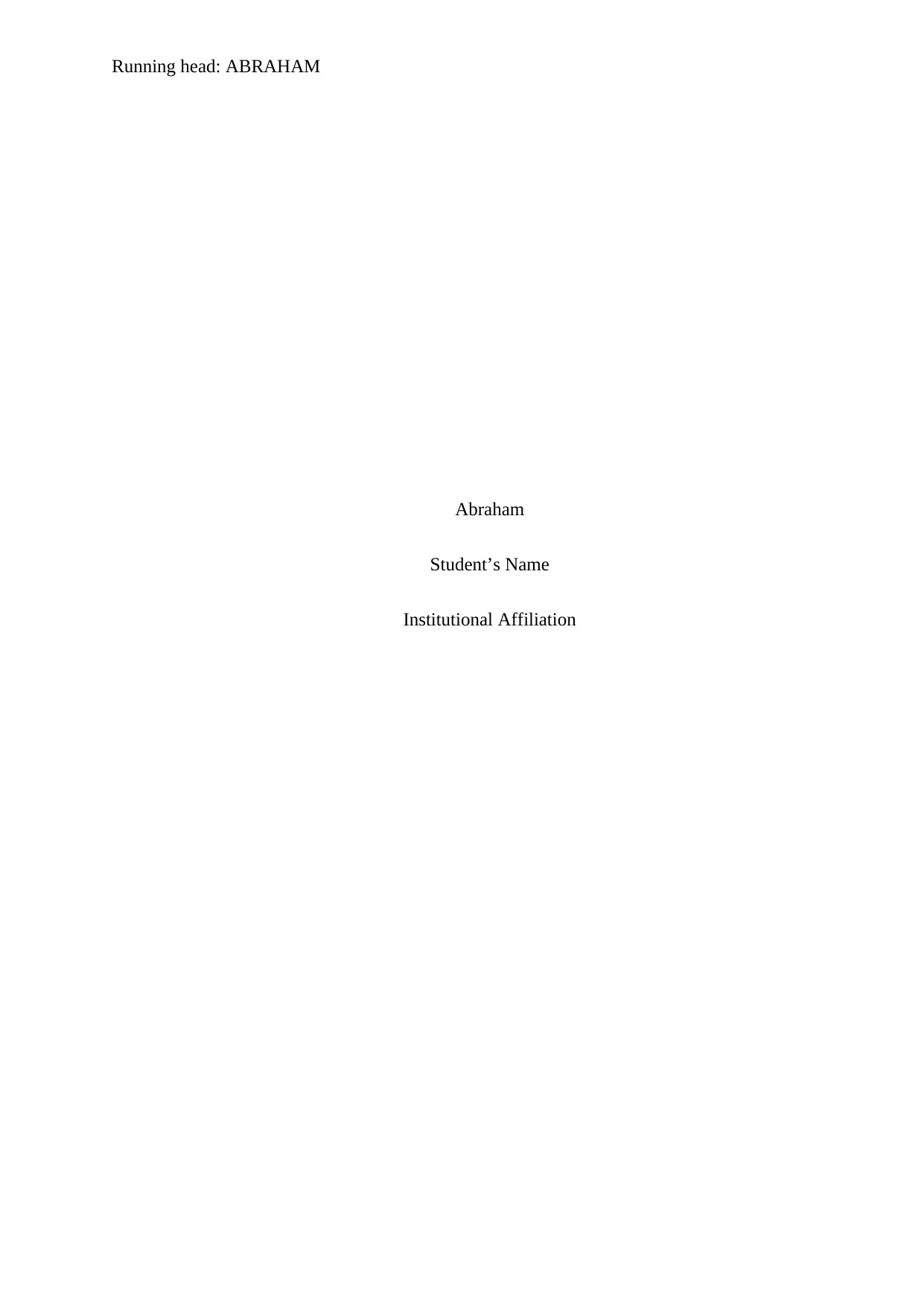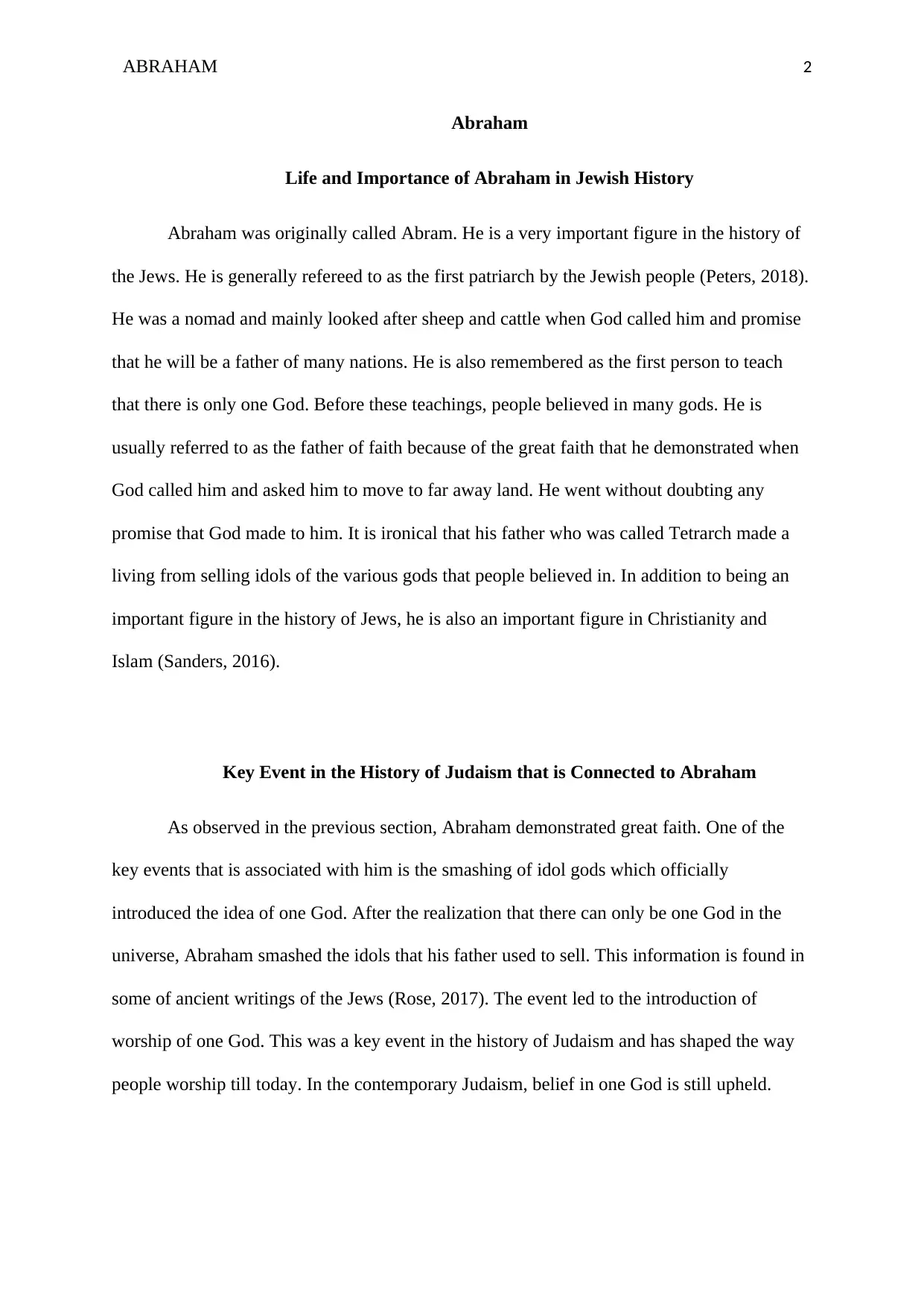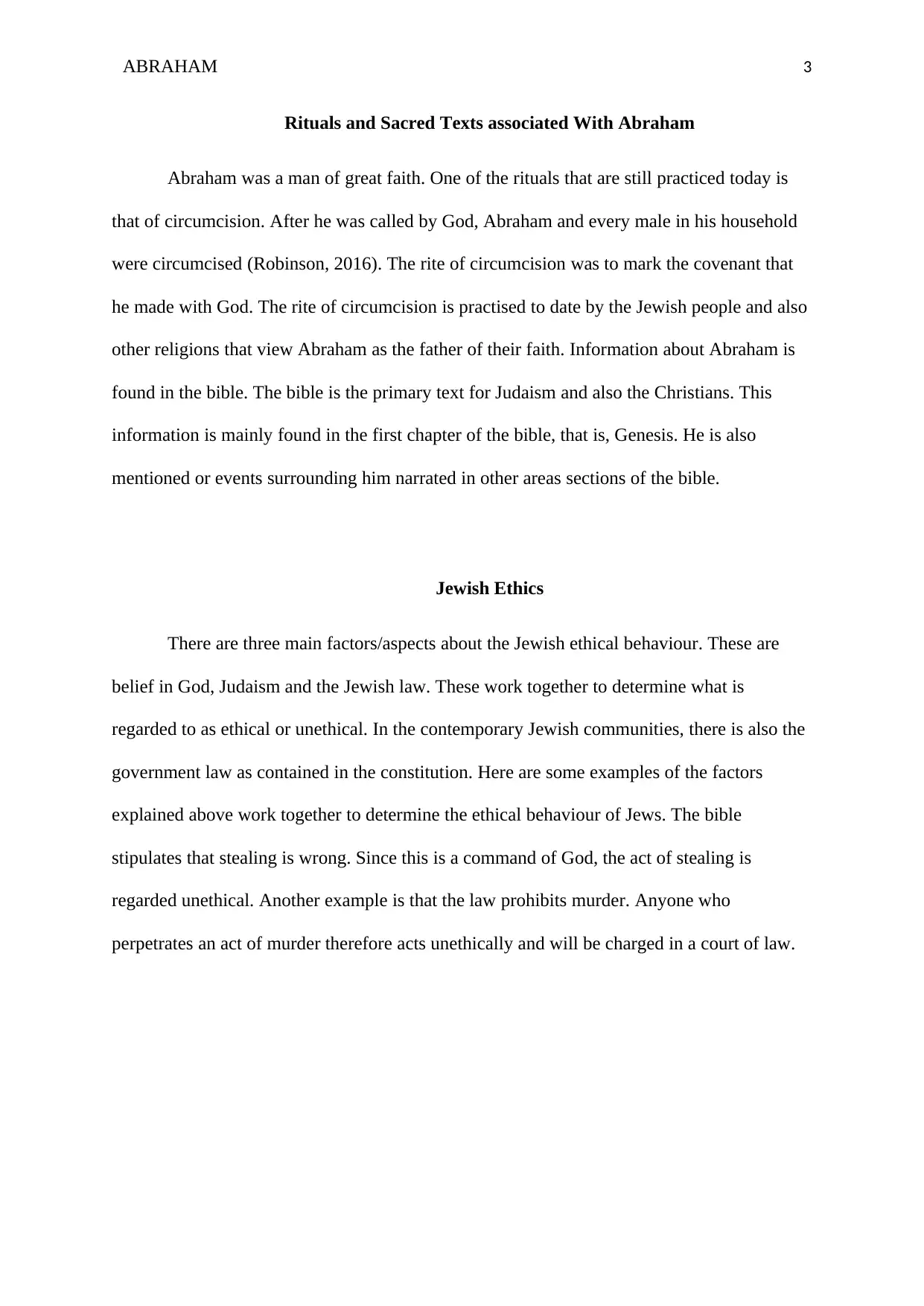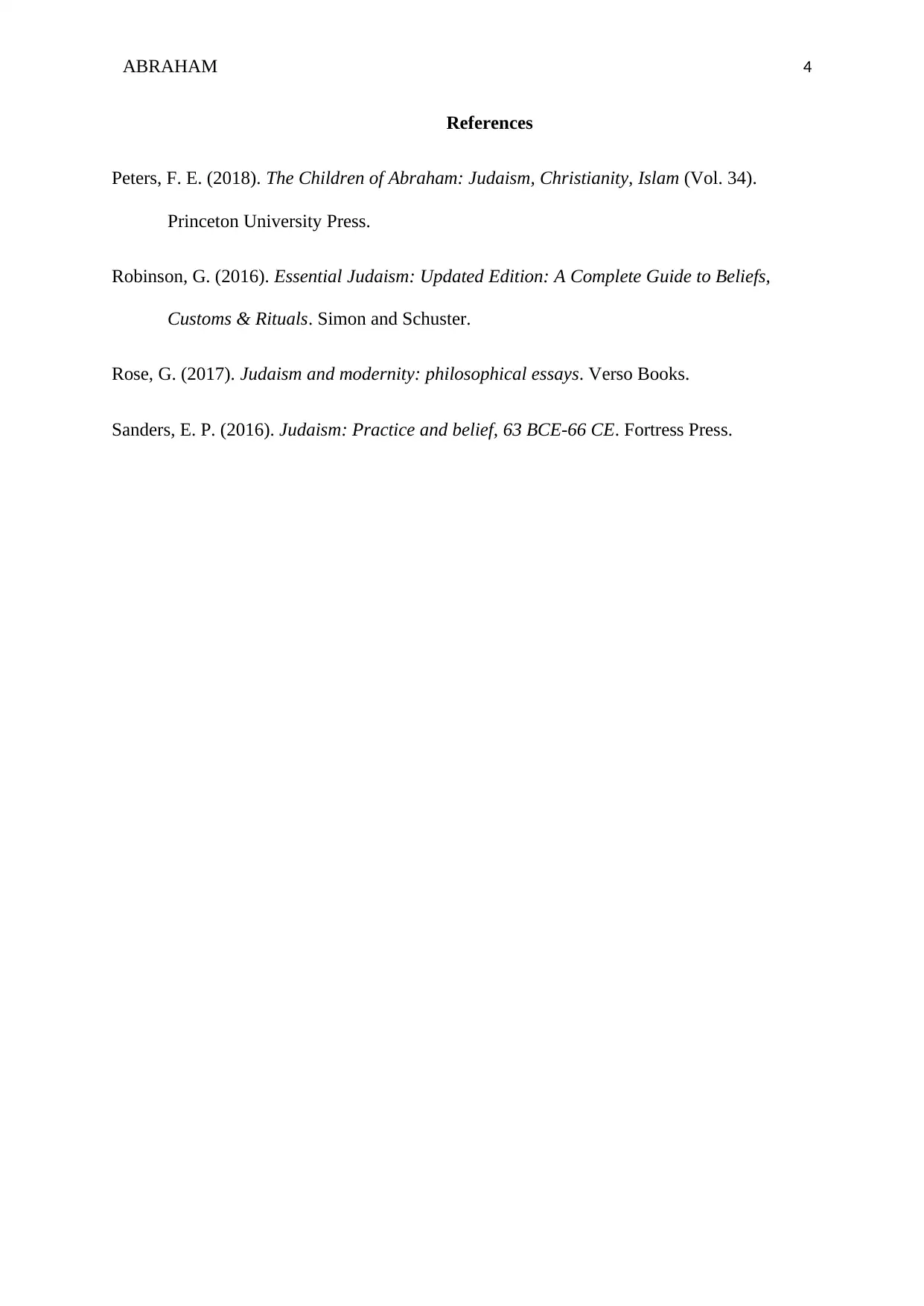Abraham: Life, Importance and Key Events in Jewish History
VerifiedAdded on 2023/05/28
|4
|725
|473
AI Summary
This article explores the life and importance of Abraham in Jewish history, including his role as the first patriarch and his teachings about one God. It also discusses a key event associated with him and the rituals and sacred texts that are still practiced today. Additionally, it touches on Jewish ethics and how they are determined by belief in God, Judaism, and the Jewish law.
Contribute Materials
Your contribution can guide someone’s learning journey. Share your
documents today.
1 out of 4









![[object Object]](/_next/static/media/star-bottom.7253800d.svg)